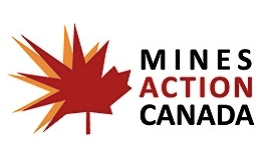DISARMAMENT & SECURITY .
An email from Mines Action Canada
Our humanitarian disarmament partners in the International Campaign to Abolish Nuclear Weapons (ICAN) are currently working hard at the United Nations conference to negotiate a legally binding instrument to prohibit nuclear weapons, leading towards their total elimination.

In a process inspired by the Ottawa Process banning landmines, states with support from civil society and international organizations are negotiating a treaty to prohibit nuclear weapons from 15 June to 7 July 2017.
After 20 years of work on the Ottawa Treaty and other efforts to address the humanitarian impact of indiscriminate weapons, we have learned a lot and have considerable experience we are sharing with our colleagues. In that spirit Mines Action Canada has drafted three documents for states to review during their negotiations.
First, we submitted a new Working Paper to the negotiating conference. Our paper on The Disproportionate Impact of Nuclear Weapons Detonations on Indigenous Communities is available on the United Nations website. It follows on some themes from our Working Paper submitted with ICAN to the March session of negotiations.
(Continued in the right column)
Can we abolish all nuclear weapons?
(Continued from the left column)
Second, we have a new Frequently Asked Questions document about victim assistance in the draft treaty text. This FAQ aims to help states and civil society ensure that the provisions regarding assistance to affected persons in the final treaty support existing norms around victim assistance.
Third, we co-published a paper on sustainable development and the draft text of the treatywith the International Disarmament Institute at Pace University. Our work has shown that indiscriminate weapons are lethal barriers to development.
We are pleased to offer these papers for free but please consider supporting Mines Action Canada work to ensure that we can continue to promote humanitarian disarmament in Canada and internationally.
Over the next three days, MAC staff will be attending the negotiations and speaking at a briefing event on positive obligations in the treaty on Wednesday June 21, 2017 to further outline lessons learned from previous disarmament treaties. For more on the negotiations please visit ICAN's website at www.nuclearban.org, follow @MinesActionCan on Twitter plus the hashtag #nuclearban on social media.
(Thank you to Janet Hudgins, the CPNN reporter for this article.)
I am happy that Mine Action Canada is taking lead in Abolition of Nuclear Weapons.
In South Asia we are facing grave problem of nuclear proliferation . I am glad to inform you that my paper “Nuclear Conflict Flash Point in South Asia” is accepted for World Congress “Health Through Peace” of International Physicians for Prevention of Nuclear War and Medact Forum which is going to be held in York University, United Kingdom. 4-6 September 2017
.Medical doctors around world attending the World Congress . I will be speaking regarding current situation between India and Pakistan regarding mistrust and firing on border by military personnel.
As per the studies in limited nuclear war between India and Pakistan, in Asia, two billion people will be affected and 1 billion will die due to starvation. In Mumbai city 86,50,000 people will die instantly.There will be world impact of this conflict.
I will submit the report and photos after the Congress.
Balkrishna Kurvey
President
Indian Institute for Peace, Disarmament & Environmental Protection
Hon Executive Director
No More Hiroshima: No More Nagasaki: Peace Museum